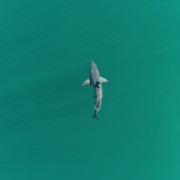- Science News
- Climate action
- The hidden effects of deforestation on our planet and 3 other fascinating Frontiers articles you may have missed
The hidden effects of deforestation on our planet and 3 other fascinating Frontiers articles you may have missed
By Colm Gorey, Frontiers Science Communications Manager

Image: Shutterstock.com
At Frontiers, we bring some of the world’s best research to a global audience. But with tens of thousands of articles published each year, many often fly under the radar. Now, as part of new series each month, Frontiers will highlight just some of those amazing papers you may have missed.
The Unseen Effects of Deforestation: Biophysical Effects on Climate
Research published to Frontiers in Forests and Global Change offers the most comprehensive and detailed evidence to date that forests are more important to the climate – both globally and locally – than we think due to the way in which they physically transform the atmosphere. The first-ever research conducted by a team from the US pinpointed the local, regional and global non-CO2 benefits of specific forest zones worldwide to find that the entire world gains the most benefits from the band of tropical rainforests spanning Latin America, central Africa and Southeast Asia.
It finds that, together, forests keep the planet at least half of a degree Celsius cooler when we account for the understudied biophysical effects – from chemical compounds to turbulence and the reflection of light.
These effects in the tropics alone deliver planetary cooling of one-third of a degree Celsius; when combined with the CO2, the cooling effect is more than 1 degree Celsius.
Article link: https://www.frontiersin.org/articles/10.3389/fnagi.2022.813531/full
2. Priority Micronutrient Density in Foods
Despite concerted efforts to improve diet quality and reduce malnutrition, micronutrient deficiencies remain widespread globally. This is especially true in low- and middle-income countries and among population groups with increased needs, where diets are often inadequate in iron, zinc, folate, vitamin A, calcium, and vitamin B12.
Now, researchers based in the US and Switzerland have published a paper to Frontiers in Nutrition attempting to understand the density of micronutrients and their bioavailability across diverse foods and the suitability of these foods to help meet requirements for populations with high burdens of micronutrient malnutrition.
After building an aggregated global food composition database, the researchers found that the top sources of priority micronutrients are organs, small fish, dark green leafy vegetables, bivalves, crustaceans, goat, beef, eggs, milk, canned fish with bones, mutton, and lamb.
Cheese, goat milk, and pork were also identified as sources, and to a lesser extent, yogurt, fresh fish, pulses, teff, and canned fish without bones.
Article link: https://www.frontiersin.org/articles/10.3389/fnut.2022.806566/ful
3. Seven in 10 long Covid patients experience concentration and memory problems several months after diagnosis
Researchers in the UK recently published a paper to Frontiers in Aging Neuroscience documenting the discovery that as many as seven in 10 patients living with long Covid symptoms are experiencing concentration and memory problems.
Half of the patients in the study of 181 people reported difficulties in getting medical professionals to take their symptoms seriously, perhaps because cognitive symptoms do not get the same attention as lung problems or fatigue.
They found that people who experienced fatigue and neurological symptoms, like dizziness and headache, during their initial illness were more likely to have cognitive symptoms later on. They also found that those who were still experiencing neurological symptoms were particularly impaired on cognitive tests.
Article link: https://www.frontiersin.org/articles/10.3389/fnagi.2022.804937/full
4. Rethinking how we grow plants in space
An international team of researchers writing in Frontiers in Astronomy and Space Sciences has proposed a total reevaluation of how we think about providing food supplies for future astronauts travelling into deep space.
Conditions in space are evidently demanding for plant growth, and this produces ‘stress’ which can be seen as both positive or negative. With the positive view, the researchers discussed whether plant production systems could proactively leverage stresses instead of always combatting against them. With an engineering view, they focused on the opportunities associated with radiation exposure (visible light, UV, gamma, cosmic). Rather than adapting Earth conditions into space, they advocate on rethinking the whole issue and proposed opportunities to exploit space conditions, commonly seen as threats, to benefit space farming.
Article link: https://www.frontiersin.org/articles/10.3389/fspas.2022.841211/full
REPUBLISHING GUIDELINES: Open access and sharing research is part of Frontiers’ mission. Unless otherwise noted, you can republish articles posted in the Frontiers news site — as long as you include a link back to the original research. Selling the articles is not allowed.




